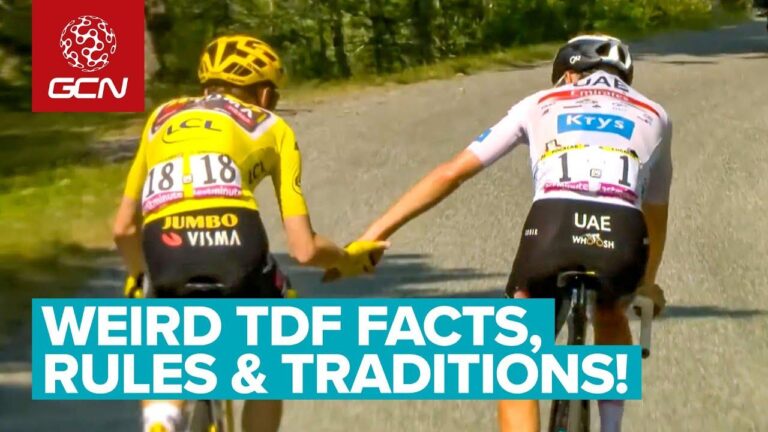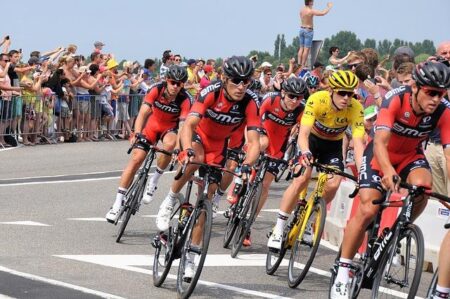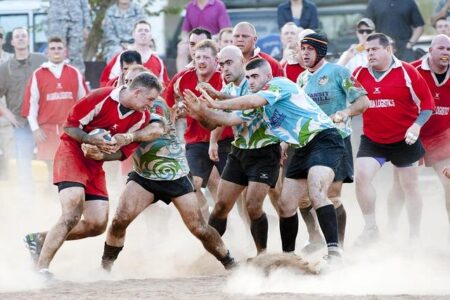The Unwritten Rules of the Tour de France: What Are They and How Are They Enforced?
As the worldŌĆÖs most prestigious cycling race gears up each summer, the streets of France transform into a battleground for elite cyclists. While the Tour de France is governed by a strict set of formal regulations, an equally significant yet less visible layer of “unwritten rules” shapes the dynamics of the competition. These unspoken guidelines not only dictate rider conduct but also influence strategies, alliances, and rivalries throughout the grueling three-week event. In this article, we delve into the essence of these unwritten rulesŌĆöexploring what they are, how they came to be, and the often tacit ways in which they are enforced, from the peloton to the team hierarchy. As riders pedal toward glory, understanding these subtleties may provide deeper insight into the high-stakes game that is the Tour de France.
Understanding the Etiquette of the Peloton
In professional cycling, particularly during events like the Tour de France, understanding the unwritten rules that govern the peloton is crucial for both riders and fans. These norms dictate behavior at high speeds and in closely packed groups, ensuring safety and fairness. Key aspects of this etiquette include respecting the hierarchy within the group, with domestiques often deferring to their team leaders. Riders also adhere to unwritten agreements about road usage, allowing for smoother navigation through potentially hazardous sections. Observing the following points is essential:
- Respect for team dynamics: Riders often follow a leader’s pace and directives.
- Maintaining distance: Keeping a safe gap to avoid crashes.
- Communication: Hand signals and calls to alert others are vital.
- Neutral zones: Riders typically suspend competitive instincts in specific areas to honor traditions and rules.
Additionally, etiquette plays a critical role in the way riders position themselves within the peloton. Understanding when to ride in the slipstream and when to take the lead can influence performance and energy conservation. Riders often engage in subtle cues to signal their intentions, whether to attack or maintain pace, which is understood collectively. This nuanced interaction is sometimes summarized in the following table:
| Action | Significance |
|---|---|
| Attacking | Initiates a breakaway and shifts the race dynamic. |
| Following | Conserves energy and shows respect for strong riders. |
| Pulling on the front | Dedicates effort, signaling solidarity with teammates. |
Unspoken Agreements and Team Dynamics in the Race
The dynamics within cycling teams during the Tour de France are often dictated by unspoken agreements that dictate how riders behave on the road. These informal arrangements can govern everything from pacing strategies to the delegation of roles during key stages. Riders and team managers cultivate an understanding based on trust and loyalty, enabling them to navigate the grueling challenges of the race effectively. For instance, domestiques are typically expected to protect their leaders, sacrificing their own chances for glory in favor of securing a better position for their team’s star rider. This code of conduct fosters a spirit of collaboration and reinforces bonds among teammates, although it can sometimes lead to tension, particularly when personal ambitions clash with collective goals.
Moreover, unwritten rules often manifest in the subtle non-verbal cues exchanged during races. These cues can dictate everything from when to sprint to establishing pace on climbs. Failure to adhere to these silent signals can disrupt team cohesion, potentially derailing a carefully laid strategy. For instance, a last-minute attack by a rider who hasn’t signaled their intent can lead to confusion and hurt a team’s overall performance. To highlight the importance of these dynamics, consider the following breakdown of key factors influencing team cooperation:
| Factor | Impact on Team Dynamics |
|---|---|
| Pacing Strategies | Maintains energy levels and supports peak performance when it matters most. |
| Communication | Fosters mutual understanding and enables swift decision-making during the race. |
| Role Delegation | Ensures efficient use of strengths, maximizing chances of success. |
The Role of Race Officials in Upholding Unwritten Rules
The complex dynamics of the Tour de France extend beyond mere competition; they envelop a subtle fabric of unwritten rules that govern the conduct of riders and teams alike. Race officials play a pivotal role in maintaining this intricate balance, serving not only as arbiters of the written laws but also as guardians of these informal guidelines. Their presence ensures that the spirit of competition remains intact, guiding cyclists through the nebulous landscape of etiquette and mutual respect. Communication and observational skills are paramount, as officials relay unwritten protocols that might influence team strategies or behaviors on the road. For instance, respecting a fallen rider by not attacking during their recovery is a commonly upheld courtesy, a rule enforced by the tacit approval of race officials who emphasize camaraderie over cutthroat ambition.
Beyond merely enforcing basic civility, race officials are responsible for identifying breaches of these unwritten norms and responding with appropriate measures. Their authority often extends to taking immediate action in situations that could threaten the integrity of the race. This can include interventions on matters such as drafting from a car, or intimidation tactics that might arise during sprint finishes. Regular meetings and briefings throughout the race allow officials to refine their collective understanding of expected behaviors, ensuring that all teams are on the same page. Furthermore, transparent reporting mechanisms, often utilizing digital platforms, enable quick dissemination of information, enhancing accountability among competitors. The balance maintained by race officials is not merely crucial for fairness; it enhances the rich tradition of the Tour de France, ensuring that every rider feels both respected and challenged.
Navigating Road Safety and Respect Among Competitors
In the heat of competition, maintaining safety and camaraderie on the roads of the Tour de France is paramount. Cyclists navigate myriad challenges, from treacherous descents to aggressive pack riding, but the unwritten rules help ensure a certain level of respect and safety. Teams are bound by an unspoken code that emphasizes the importance of protecting fellow cyclists. Engaging in tactics that could endanger othersŌĆölike dangerous moves in narrow sections or excessive jostling for positionŌĆöare frowned upon, promoting a culture where even rivals can express mutual respect.
Cyclists also adhere to certain etiquette when it comes to road hazards. These include:
- Warning signals: A clear shout or hand signal is expected when encountering hazards such as potholes or gravel.
- Maintaining distance: Riders are encouraged to keep a safe distance from one another, especially during challenging climbs or fast descents.
- Helping hands: If a competitor suffers a mechanical failure, it’s common for others to offer assistance or even allow them to draft back into the group.
| Situation | Expected Behavior |
|---|---|
| Mechanical Failure | Offer assistance or space to recover. |
| Road Hazard | Signal and warn fellow riders. |
Insights and Conclusions
As the Tour de France rolls through picturesque landscapes and against a backdrop of fierce competition, the unwritten rules that govern this iconic race remain a crucial yet often overlooked component of its fabric. From the nuances of team dynamics to the subtle etiquette observed among riders, these guidelines shape not only the strategies employed on the road but also the very spirit of the event.
Understanding these unwritten codes is essential for fans and aspiring cyclists alike, as they highlight the camaraderie and rivalries that define the peloton. While the official regulations set the foundation, itŌĆÖs the adherence to these informal standards that often distinguishes the champions from the pack.
As we continue to witness the unfolding drama of the Tour, the importance of these rules cannot be overstated. They serve as a reminder that beyond the spectacle and sporting prowess lies a rich culture steeped in tradition, respect, and mutual understanding. Whether youŌĆÖre a seasoned follower or new to the excitement of the Tour de France, appreciating these unwritten rules will deepen your appreciation for this remarkable race and its athletes.




